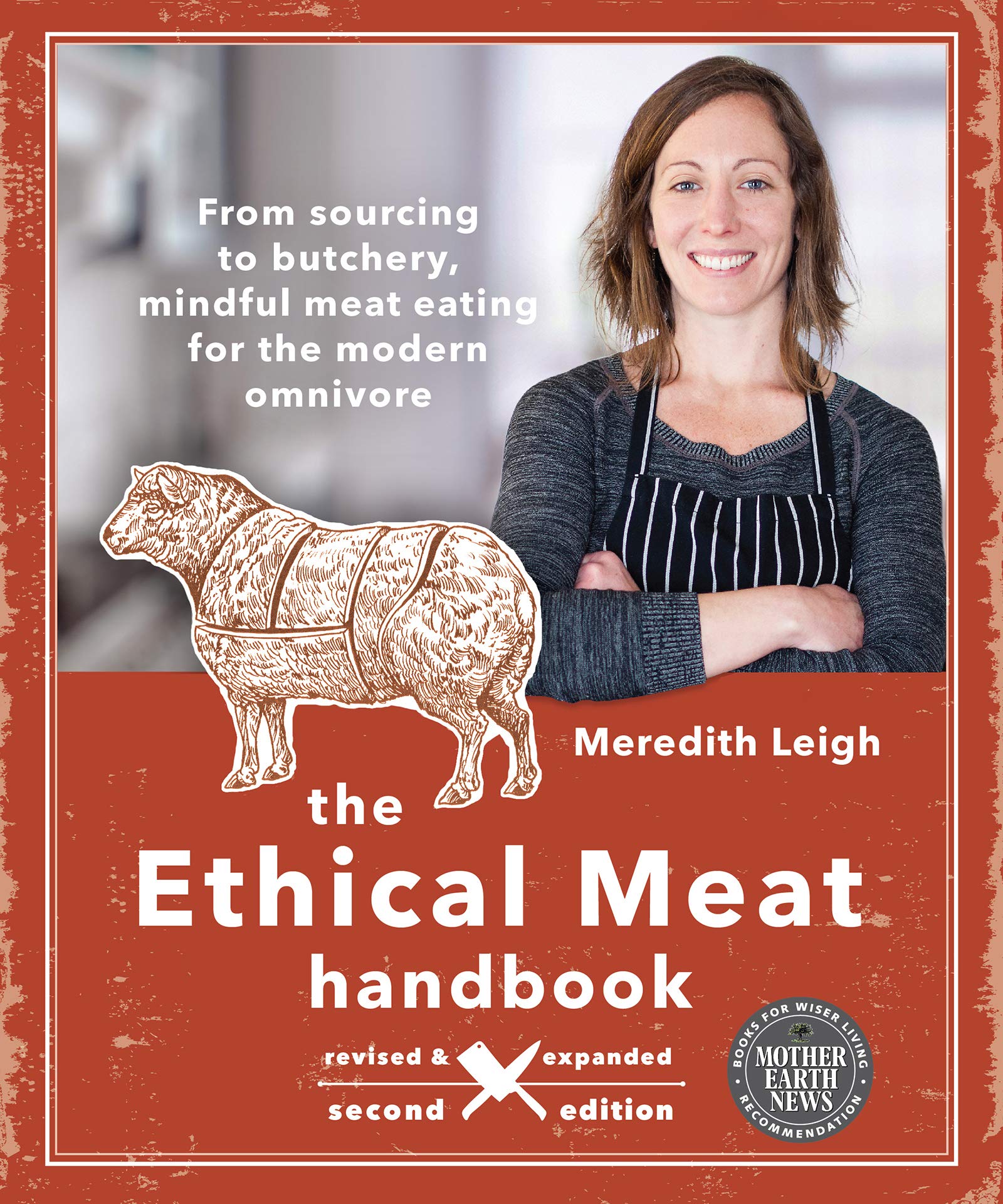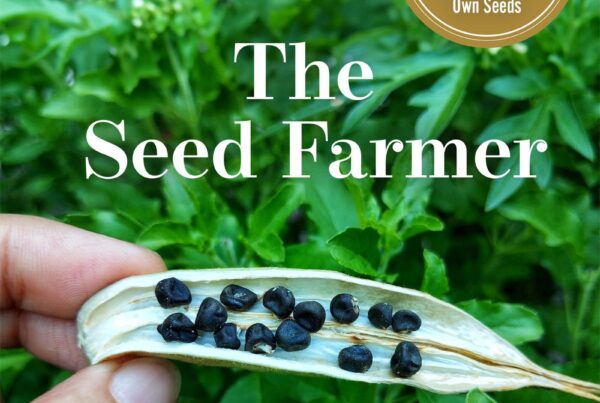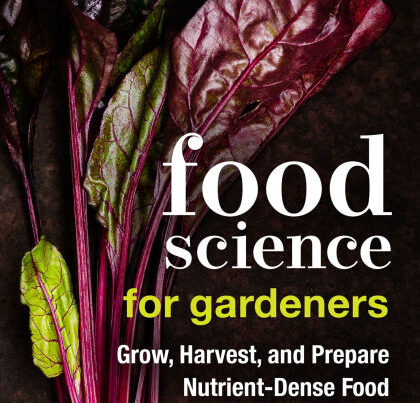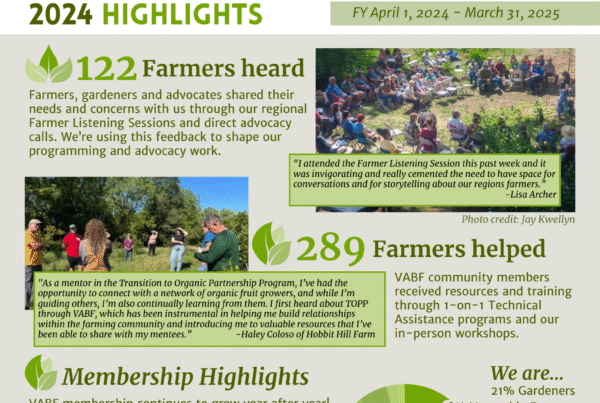Â
Meredith Leigh has given us a wonderful book, recently revised and updated. The trifecta of practicality, politics and poetry. “You need food. What everyone will not admit is that you should love it too. If you don’t love good food, put this book down. Now.†“The key is to honor the process, the pursuit of good food.† Ethical meat is that from an animal which enjoyed a good life, was afforded a good death, the meat is butchered properly, then cooked or preserved properly.
The new edition includes step-by-step color photos for beef, pork, lamb, and poultry butchery and over a hundred recipes for whole animal cooking. There are tips on preparing difficult cuts, sauces, and extras. Meredith has written a whole book Pure Charcuterie, but the second edition of The Ethical Meat Handbook also includes a history of charcuterie, as well as the general science and math principles of it, and “tooling upâ€.
One aspect of her book combines practical information on how to butcher beef, lamb, pork and chicken step by step; make sausage and smoked meats; raise livestock humanely and successfully make a living doing so. She encourages and demystifies, sharing otherwise hard-to-find information in words and photos. I won’t say much about this section. I have butchered poultry and in the past, a few sheep. But this is not my area of expertise.
The second aspect includes the politics of animal farming. Meredith says “I am not a meat-crazed woman. I detest dietary dogma.†She was vegetarian for nine years, vegan for two, and also a vegetable farmer. She advocates for integrating meat consumption into a robust, diverse diet. She explains that she became a vegan motivated by “deep empathy and political aggravation . . . but my solution, sadly, mostly helped only me.†She now sees that her diet had been one of luxury and a desire to escape a system that she felt she could not affect. Now, in her life as a butcher, she can be more politically effective. Her book does not dwell on abuses of livestock, but promotes the more ethical path. In answer to those who criticize the water use of livestock farming, Meredith points out the bigger picture: water given to livestock doesn’t disappear – that which isn’t converted to meat returns to the pastures to improve the organic matter and to be used again. It’s the water cycle we should consider, not water “useâ€. Using water isn’t wrong – it’s important how you use it.
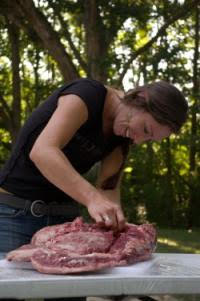
Supermarket food is subsidized by our tax dollars. We are not paying the true cost at the point of sale. The true cost of “cheap†food includes higher healthcare costs, higher environmental clean-up costs. Paying in instalments causes us to expect food to be cheap.
The third aspect of her book is her poetic way of sharing her observations and feelings. Her farming and domestic partnership collapsed, she lost her farm – clearly that was hard.
In the Pork chapter she writes “I owned land once. Looking back, I like to think I can remember every single morning on my farm, but what I really remember it is the way that it feels each time to walk out the door into it. That’s the hush.â€
“I used to feel like an invalid every spring, or like someone who had been asleep, because I was always so surprised at how new the earth made itself.†“But the pigs now are lying in the sun. It is the stillest, sweetest moment, there in the mud, and they are all spooned up against each other sideways. Every now and again, an ear twitches, or a chubby head bobs, but the pigs and the sun are mostly etched there, silently.â€
And while it’s clear that losing her farm was hard, it’s just as clear that Meredith has jumped back on her feet, and opened a retail butcher shop. “Inspire yourself to a point of spirituality towards the animals you raise.†She is a true foodie: “Good food ignites all of our senses.†She generously shares some very delicious recipes. She travels extensively teaching charcuterie and food production and processing to chefs, butchers, home cooks, and farmers.
By Pam Dawling
Author of Sustainable Market Farming: Intensive Vegetable Production on a Few Acres,
sustainablemarketfarming.com
facebook.com/

